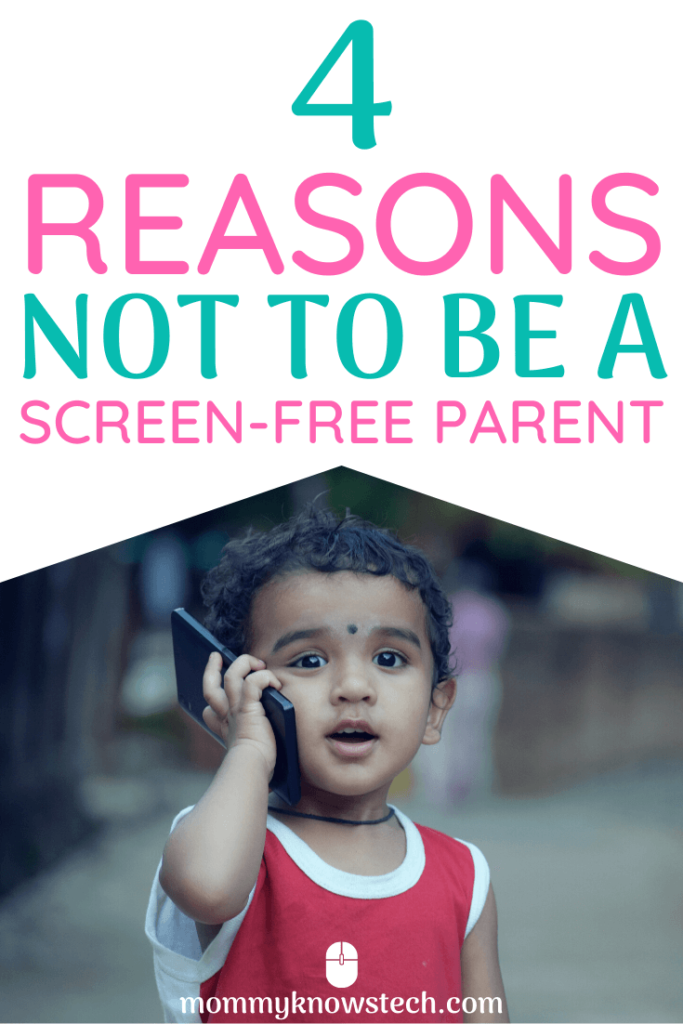This post may contain affiliate links, meaning at no additional cost to you I may earn a small commission when you click a product or company link. As an Amazon Associate I earn from qualifying purchases.
Are there any benefits of screen time for kids?
By now everyone knows there are all kinds of reasons to limit kids’ screen time. Sometimes it feels like a firehose of bad news. And if you feel a little bit overwhelmed by it all right now, I completely understand.
But it’s helpful to remember that technology is a tool. It’s not inherently good or bad in and of itself; what matters is how we use it.
When you are aware of the risks as well as the benefits, you can make tech your tool instead of letting it consume you.
And that balance is an important lesson to be sharing with your kids as they grow up.
It’s all about how you’re using the technology available to you. It’s about being intentional with your digital life.
So let’s take a breath of fresh air and talk about some of the benefits of screen time for kids.

Table of Contents
1. Tech can make learning easy
The internet is an awesome learning resource.
My son asked me once how we get milk. So I looked up milking videos on YouTube, and we learned about farms and cows and milking machines.
We’ve also watched videos in Spanish, learned about subways, explored history, learned how the voice and hearing work, and more.
My husband watches random “maker” videos with our son—they learn about making bottle rockets or kites or whatever else sounds interesting at the time.
There are apps and videos for basically everything you could possibly want to learn:
- reading
- foreign languages
- math concepts
- the scientific method
Studies show that access to tablets can help under-privileged groups—like low socio-economic backgrounds—learn more effectively.
Active games and videos can help kids learn new ways to get up and move—rather than discouraging exercise, they promote it in fun and interesting ways.
And video games can improve coordination and motor skills.
As your children get older, they’ll be able to look things up for themselves. Our tech devices are amazing tools for learning more about how the world works.
If there’s something you want to learn or do, you’re sure to find it somewhere on the internet.
2. Screen time can benefit kids by bringing people together
Families tend to be spread out a lot more geographically than they used to be.
When my husband started his PhD program in the next state over, we had to leave our home that was 5 minutes away from his parents’ house.
Now we live a good 5-hour drive from my in-laws, and my own parents live 20 hours away.
That means our children don’t get to visit their grandparents much. (And no more free babysitting!)
But technology helps.
With video chat (like Skype and Facetime), grandparents and grandchildren get to see and talk to each other face to face.
The kids love it. And the grandparents do too, of course.
Military families often use video chat to stay in touch with each other and keep relationships strong during deployments.
Even Facebook has its benefits. As much as I like to pick on Facebook–for the effects it had on my confidence as a new mom, for example–I’ve made lasting friendships there.
I try to use it in moderation and periodically delete the Facebook app from my phone when I see it starting to consume all my time. But I also definitely see the benefits.
My moms groups are indispensable resources when I have no idea what to do about the latest issue with my kids. I’ve been able to keep up with high school and college friends I would have otherwise lost contact with.
And distant family members enjoy seeing my posts about what’s new in our lives.
3. A benefit of screen time for kids is that it helps to equip them for the real world
There’s no denying it—we live in a tech-centric world.
Technology runs everything, from the obvious computers, smartphones, tablets, and televisions, to the not-so-obvious washing machines, microwaves, and cars. (Smart lightbulbs, anyone?)
Children who become adept with technology now will be well equipped for the demands of school and the real world.
Now, there’s a common misconception here that I want to address. Being comfortable with technology does not necessarily mean your child understands technology.
It’s a little like your own understanding of electricity. It’s everywhere, and you know how to use it.
You even have a pretty good idea how to use it safely. You know (hopefully) that it’s a really bad idea to stick a fork in an electrical outlet.
But there’s a pretty good chance you only have a vague idea how it works. If there’s a real problem or you need to make changes to your home’s wiring, you’re going to call an electrician.
It’s the same with technology.
Your kid may know how to navigate a smartphone (probably better than you do, right?), and if you teach him, he’ll know how to use it safely.
But he really doesn’t understand how it works. Knowing how to use a smartphone with confidence is not going to make him a programmer.
That requires him to develop logical, computational thinking as well as to study the specific workings of technology and programming. He won’t necessarily know how to fix things (although he may be comfortable with figuring out how to fix them).
In other words, using technology from a young age will make your child comfortable with using tech in much the same way that you’re comfortable with using electricity.
Your kid doesn’t have to be a programmer to be prepared for the later requirements of life.
In school, children take tests by computer, turn in typed assignments, and communicate via email with their teachers.
They’ll need to look up information for school reports.
If your child is fluent enough with the computer to know how to type well and confidently navigate the computer, he will be able to think about the content he needs to produce rather than being held back by how the device works.
Certain games and programs can also teach important life skills.
Minecraft, for example, teaches effective resource management (if he uses up his resources, they’re gone!) and exercises his imagination and creativity.
Children can use certain apps to learn language skills—whether they’re learning English or a foreign language or just learning to read.
The U.S. Department of Education’s and Department of Health and Human Services’ 2016 Policy Brief on Early Learning and Educational Technology gives several examples of young children using technology to learn important skills. For example:
- Preschoolers at Austin STEM Academy researched how to build a better home for their guinea pigs, developing critical thinking and problem solving skills.
- A 4-year-old Chinese-speaking boy in Georgia was able to use an app to tell his English-speaking classmates about his home and family and improve his own English skills.
- Kindergarten children used digital tools to learn about dinosaurs and fossils while they conducted a “dig” in their classroom.
Not everything marketed as “educational” actually is, though. Read here for help assessing the educational value of your child’s media.
4. Screen time can benefit teens by helping to keep them safe
Yes, kids have access to all kind of questionable material on the internet. Yes, they can get into trouble texting their friends at all hours of the night.
It’s one reason I strongly recommend having a home charging station so your family isn’t sleeping with their phones.
But with the rise of cellphones and social media have come some interesting developments.
- teen car accident rates are down
- drug and alcohol use has gone down
- teen pregnancy rates have dropped 44% since 1991
- fewer teens are having sex
- HIV rates are lower
- teen arrests have dropped
Teens hang out online instead of at the mall. Yeah, the decline of the mall makes me a little sad–it was always a highlight for me when our family took a trip to the mall.
And while you can argue that digital relationships prevent teens from learning how to interact face to face, you can’t avoid the fact that teens who are at home while they chat with their friends aren’t getting into car accidents, having sex, or trying drugs.
The benefits of screen time for kids are significant
While you may be able to get some of these benefits without screens, I believe it is in our kids’ best interest to introduce them to smart screen time from an early age.
Yes, I believe in reducing screen time. Yes, there are definite negatives to too much screen time–for kids and grownups both.
But I believe the benefits of screen time support intentional screen time rather than going completely screen free.
Need some help navigating the pros and cons of screen time so that you can pull together a solution that works for your family?
Take a look at my free screen time mini course and printable.

